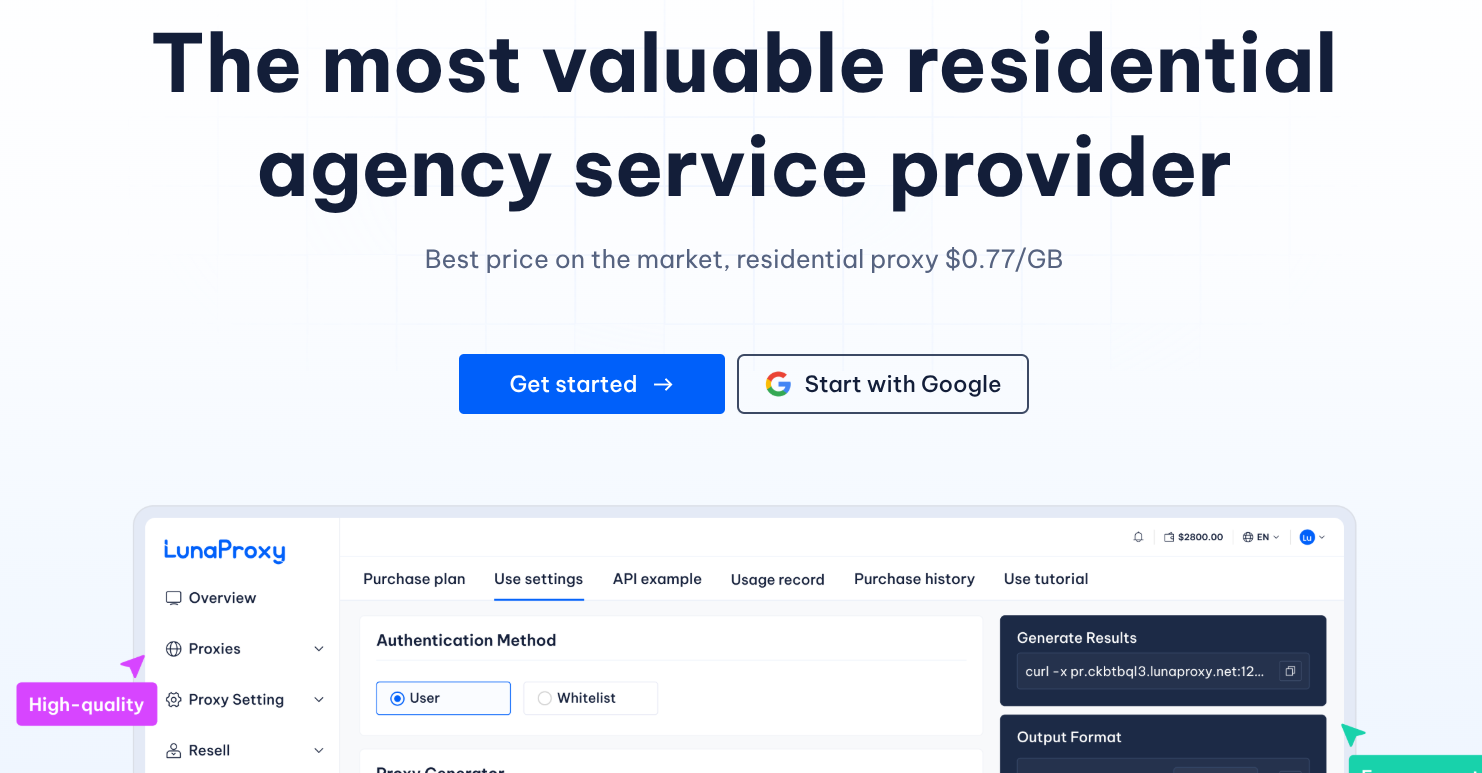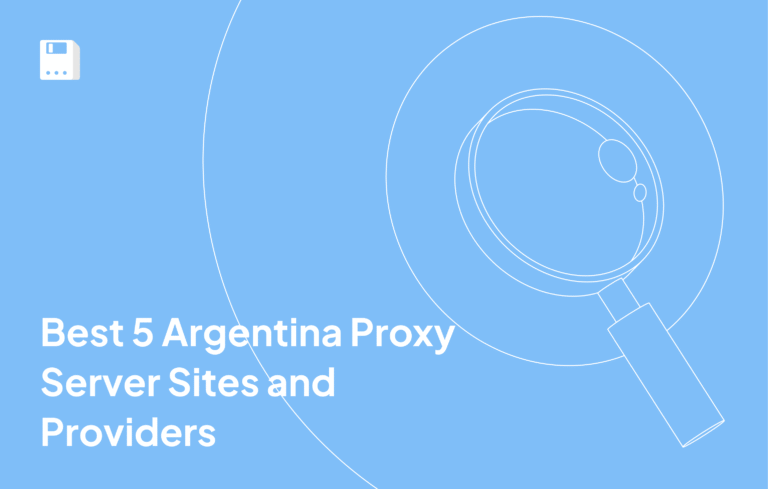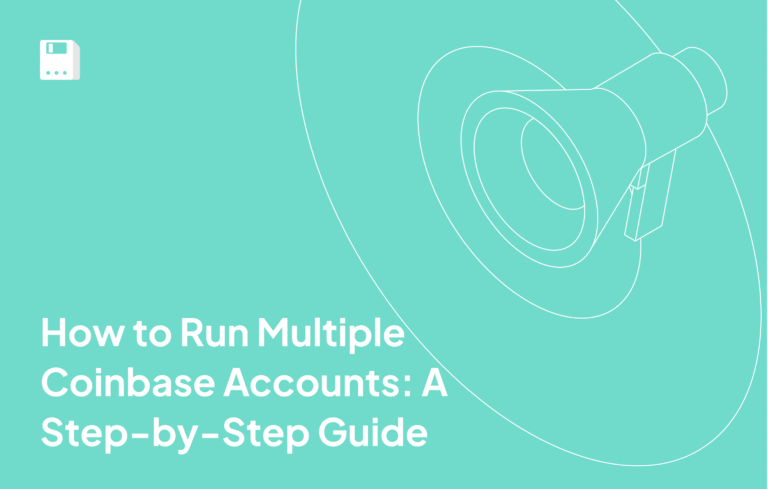LunaProxy has maintained a good image on the surface.
The service gives you residential proxies at affordable rates, even throwing in a free proxy manager app if you want to use it. The unlimited residential plan is also appealing since it removes the usual restrictions on traffic and connections.
But the issues start showing once you actually spend time with the service, which is likely why you’re here, too. The proxy coverage leans heavily on certain regions, so global reach is not as strong as the numbers suggest. Customer support is another sticking point.
Combine this with competitors offering cheaper plans and more reliable performance, and you can see why many users start considering other options.
That’s exactly why I’ve gone hands-on with different providers to find better choices.
In this article, I’ll walk you through the best LunaProxy alternatives in 2025.
Check out this TL;DR table below summarizing each option before going into the details.
TL;DR
| Provider | IP Pool Size | Countries Covered | Starting Price | Free Trial | Proxy Types |
| FloppyData | 65M+ | 195+ | $2.95/GB | ❌ No | Residential, Mobile, Datacenter, ISP |
| PIA S5 Proxy | 350M+ | 200+ | $4/GB | ❌ No | ISP, Residential, Datacenter |
| Infatica | 20M+ | 195 | $0.60/GB | ❌ No | Residential, ISP, Mobile, Datacenter |
| NetNut | 85M+ | 195+ | $99/month | ✅ Yes (7 days) | Residential, Mobile, ISP, Datacenter |
| Pyproxy | 90M | 190+ | $2.97/GB | ❌ No | Residential, Mobile, Datacenter, ISP |
What is LunaProxy?
LunaProxy is one of those Hong Kong-based proxy providers that popped up between 2022 and 2024.
I’ve spent some time digging into it, and on paper, LunaProxy throws out some really big numbers.
They say their network covers over 200 million proxies across 195 countries, all the way down to city-level targeting. On top of that, they claim to have 5,200 servers running to help with load balancing. This sounds impressive, but if you’ve been around long enough, you know those figures are inflated.
Still, credit where it’s due, the network is fairly large, and it’s mostly residential. When I tested, I saw plenty of IPs popping up from Brazil and India. Though not so much from the United States and Europe. So, while the coverage exists globally, the balance leans heavily toward certain regions.
Their residential proxy has two options. First, the traffic-based proxies which are better suited for web scraping or jobs where you need quality over sheer numbers. Then there’s the unlimited residential plan, which gives you the entire network with no limits on traffic, ports, or threads. While this is good, you can probably imagine how much potential there is for abuse in an unlimited pool.
As for customer support, they’ll tell you it’s 24/7 live assistance, but in practice, it’s a chatbot. And not a particularly reliable one. At least my experience was a mess.
Some answers came back in Chinese, others didn’t make sense at all, and the bot pretty much broke once I tried asking questions outside its script.
Key Features
| Features | Details |
| Total Available IPs | 200 Million+ |
| Proxy Types | Residential, ISP, Datacenter |
| Geographic Distribution | 195+ countries |
| IP Targeting Precision | Country, city, state, ISP, ZIP-level targeting |
| ASN/Coordinates Targeting | Yes |
| Free Trial | Yes (for enterprise users) |
| Unlimited bandwidth | Yes |
| Success Rate | 99.9% |
| Average Response Time | 0.6s |
| IP Rotation | Auto, sticky sessions (max 90 mins) |
| Supported Protocols | HTTP, HTTPS, SOCKS5 |
| 24/7 Support | Yes |
Pricing Details
- Residential Proxies: starts at $6/month (5 GB)
- Unlimited Traffic Proxies: starts at $2530/month (200 Mbps)
- ISP Proxies: starts at $5/IP/month
- Rotating ISP Proxies: starts at $1.2/month (1 GB)
- Datacenter Proxies: starts at $4.50/IP/month
Pros & Cons
| Pros | Cons |
| Decent sticky session duration (up to 90 mins) | 24/7 support mainly via chatbot only |
| Has a feature to create a whitelist | Free trial for enterprises |
| No charges for invalid IP addresses |
Top 5 LunaProxy Alternatives
Now let’s explore LunaProxy alternatives. I’ve gone hands-on with the following proxies to figure out where they shine and where they might not.
1. Floppydata (Best LunaProxy Alternative)
FloppyData is a Dubai-based proxy provider that gives you access to over 65 million IPs in over 195 countries.
All these IP addresses come directly from real devices and make detection significantly harder, and this showed in practice, too, in my tests.
In my stress tests, FloppyData maintained a 99.99% success rate on web requests and an equally impressive 99.99% uptime, even under heavier workloads.
To see how it handled real-world use, I set up a residential solution for scraping an e-commerce site.
I configured the proxy, picked New York as my location, and launched the session.
Soon after, traffic started flowing smoothly while IPs kept rotating as I had specified, and because there was no traffic cap holding me back, I got the full value of every gigabyte.
Later, I tried FloppyData’s data center service for streaming, and the speeds were just as fast.
One of the most useful aspects for me was the unlimited concurrent sessions. Many providers quietly restrict this, which becomes a headache when you scale projects, but with FloppyData, I didn’t run into any limitations.
Based on this mix of reliability and speed, I can say that FloppyData stands out as the best LunaProxy alternative in 2025.
Key Features
| Features | Details |
| Total Available IPs | 65 Million+ |
| Proxy Types | Residential, Mobile, Datacenter, ISP |
| Geographic Distribution | 195+ countries |
| IP Targeting Precision | Country, City, State, ASN / ISP targeting |
| ASN/Coordinates Targeting | Available |
| Free Trial | No |
| Unlimited bandwidth | Yes |
| Success Rate | 99.99% |
| Average Response Time | 0.3s |
| IP Rotation | Automatic, Per Request |
| Supported Protocols | HTTP, HTTPS, SOCKS5 |
| 24/7 Support | Yes (Live chat, Email, Telegram) |
Pricing Details
- Residential proxy: Starts at $2.95/GB
- Mobile proxy: Starts at $2.95/GB
- Datacenter proxy: Starts at $0.90/GB
- ISP Proxies: Starts at $5/IP
- High volume packages: Starts at $2/GB
Pros & Cons
| Pros | Cons |
| 99.9% network uptime | Slightly smaller IP pool than competitors like Oxylabs, and NetNut |
| Extremely fast response times (0.3s avg) | No free trial |
| Quick setup & ridiculously low error rates | |
| Little to no learning curve, easy-to-navigate user interface | |
| Free public proxy list | |
| Bandwidth and concurrency is unlimited | |
| Rotating and sticky sessions supported | |
| Proxy checker and Chrome extension come free | |
| Full anti-detect browser compatibility | |
| PAYG + crypto payment support | |
| There’s no expiry on unused data | |
| Live support via Discord, email, and chat |
2. PIA S5 Proxy
PIA S5 Proxy is a lot like LunaProxy in how it works, just with a few differences.
It’s also a Hong Kong-based provider and came into the market in late 2022.
The company puts forward some very bold claims, saying it runs the largest residential proxy network with more than 350 million IP addresses.
From my experience, that number is clearly overstated, but the network is still large enough to cover most of the locations you’d realistically need.
PIA S5 splits its proxies into two categories: residential and ISP (static residential). Each one comes in two flavors, either you use their installable proxy manager app, or you don’t.
With the proxy manager, you get SOCKS5 residential proxies and long-acting ISP IPs. SOCKS5 residential lets you pick specific home IPs, connect directly, and hold onto that connection until the source device goes offline, which usually happens after 12 hours.
The long-acting ISP option is similar, but it runs on IPs tied to consumer ISPs, which gives you more stability and up to 24 hours of use.
If you decide to skip the proxy manager, then you get the more typical options: a traffic-based residential network, an unlimited residential plan without traffic caps, and static ISP proxies you can keep for a full year.
That said, while the SOCKS5 pool is big, its availability gets thinner once you filter by city and ISP. For instance, the widget only displays around 80 total locations, and coverage is particularly limited in China.
Africa is also underrepresented, with only six countries available.
Key Features
| Features | Details |
| Total Available IPs | 350 Million+ |
| Proxy Types | ISP, Residential, Datacenter |
| Geographic Distribution | 200+ countries |
| IP Targeting Precision | Country, state, city, ASN, ZIP code |
| ASN/Coordinates Targeting | Yes |
| Free Trial | No |
| Unlimited Bandwidth | No |
| Success Rate | 99.9% |
| Average Response Time | Undisclosed |
| IP Rotation | Automatic (every request), Sticky sessions (1-90 mins) |
| Supported Protocols | HTTP, HTTPS, SOCKS5 |
| 24/7 Support | Yes |
Pricing Details
Pay per IP plans (monthly):
- Socks5 Proxy: starts at $50 for 200 IPs
- Socks5 Proxy (Enterprise): starts at $750 for 1500 IPs
- Long-Acting ISP Proxy: from $79.5 for 150 IPs
- Static Residential Proxy: starts at $5/IP
Pay per GB plans (monthly):
- Residential Proxy: starts at $15 for 5 GB
- Unlimited Traffic Proxy: starts at $2,530 (200M)
- Data Center Proxy: starts at $30 for 60 GB
Pros & Cons
| Pros | Cons |
| No charge for Invalid IPs | No free trial |
| Cheap IP rates | Poor documentation |
| SOCKS5 residential allows street-level targeting | Unsatisfactory customer support |
3. Infatica
Infatica is based in Singapore and has been around since 2019, which already makes it one of the more established names compared to newer proxy providers.
It started with premium residential proxies but has since expanded into all the major types. From the way the service is structured, it’s clear they’ve always aimed at business users, mainly small and medium-sized companies, though in recent years they’ve made moves toward enterprise clients as well.
Moreover, Infatica has kept its advertising modest. They report a network of 20 million IPs. That might sound small when you compare it with Oxylabs and Bright Data, but the coverage is still global, and the filtering options are very flexible. You can filter by city, ASN, ZIP code, or even combine multiple filters together for more precise targeting.
My tests showed that speeds were strong enough for most tasks, but I did notice more connection errors compared to the top-tier competitors.
Their response times were competitive in some locations, especially in the UK and EU, where they beat their own advertised average of 0.4 seconds. However, in regions like Brazil and India, I often saw response times climb beyond the 1-second mark.
Key Features
| Features | Details |
| Total Available IPs | 20M+ |
| Proxy Types | Residential, ISP, Mobile, Datacenter |
| Geographic Distribution | 195 countries |
| IP Targeting Precision | Country, state, city, ASN, ZIP |
| ASN/Coordinates Targeting | Yes |
| Free Trial | No |
| Unlimited bandwidth | Yes |
| Success Rate | 99.9% |
| Average Response Time | 0.4s |
| IP Rotation | Automatic or Sticky sessions (5-60 mins) |
| Supported Protocols | HTTP, HTTPS, SOCKS5 |
| 24/7 Support | Yes |
Pricing Details
- PAYG Dynamic Residential Proxies: $4/GB
- Dynamic Residential Proxies: starts at $96/month (25GB)
- Static ISP Proxies: starts at $3/month
- PAYG Datacenter Proxies: $0.60/GB
- Datacenter Proxies: starts at $29/month (50 GB)
- PAYG Mobile Proxies: $8/GB
- Mobile Proxies: starts at $45/month (6 GB)
Pros & Cons
| Pros | Cons |
| Performant proxies | No free trial |
| 7-day Money-Back Guarantee | Smaller pool compared to major competitors |
| Responsive customer support | |
| Competitive response times in UK and EU |
4. NetNut
NetNut positions itself more as a business-focused service than something aimed at casual proxy users. It offers a mix of rotating proxy networks and a few scraping APIs, but the pricing and structure make it clear they’re targeting companies with bigger needs because the entry-level plans start at $99.
The main product is residential proxies, which they market under something called “proprietary reflection technology.” After testing, I can say that’s really just a way of saying the IPs come from real devices, similar to what most other providers do.
NetNut also offers mobile proxies, but session control is limited. You can rotate IPs or use sticky sessions, but you don’t get to decide how long a session lasts.
Performance-wise, NetNut advertises a 99.9% success rate, and while my testing wasn’t far off, it usually hovered between 96% and 99% depending on the region. That isn’t bad, but with other providers consistently hitting above 99%, it still leaves room for improvement.
Response times were another area where the numbers didn’t fully match the claims. I recorded averages between 0.7 and 1.5 seconds. That’s decent, but not exactly “ultra-fast” as they describe on their site.
And customer support was one of the weakest parts of the experience. When I emailed them, it usually took more than an hour to get a reply. The live chat wasn’t much better, with wait times averaging around two hours during regular business hours in Israel.
All in all, NetNut works if you’re a business with larger proxy requirements, but as a LunaProxy alternative, it’s important to know you’ll be paying for premium features that don’t always perform as promised.
Key Features
| Features | Details |
| Total Available IPs | 85 Million+ |
| Proxy Types | Residential, Mobile, ISP, Datacenter |
| Geographic Distribution | 195+ countries |
| IP Targeting Precision | Country, state, city, ASN |
| ASN/Coordinates Targeting | Yes |
| Free Trial | 7-day |
| Unlimited Bandwidth | No |
| Success Rate | 99.9% |
| Average Response Time | Undisclosed |
| IP Rotation | Automatic & Sticky sessions (up to 1 hour) |
| Supported Protocols | HTTP, HTTPS, SOCKS |
| 24/7 Support | Yes (email) |
Pricing Details
- Rotating Residential: Starts at $99/month (28GB)
- Static Residential (ISP): Starts at $99/month (7GB)
- Mobile Proxies: Starts at $99/month (13GB)
- Datacenter Proxies: Starts at $100/month (100GB)
Pros & Cons
| Pros | Cons |
| One-week free trial available | No pay-as-you-go option |
| Positive user reviews | High starting prices |
| Detailed guides | Email-only support on cheaper plans |
| Live support available only during Israeli working hours |
5. Pyproxy
PyProxy is another Hong Kong-based service, and while the company itself has been around since 2016, it only started rolling out more complete products after 2022.
That’s when it began getting attention, mainly for its affordable pricing compared to bigger names in the industry.
In my tests, I found PyProxy to be more of a budget-friendly option that still manages to deliver dependable performance for web scraping, data collection, and general online privacy.
The network includes around 90 million IP addresses worldwide.
To test stability, I tried three of their cheapest static ISP proxies.
They showed up instantly in my account, and setting them up was quick.
Using them, pages loaded within seconds, and the connection quality was strong. Out of 52 domains checked, only one IP showed up as blacklisted, while the other two were completely clean.
During the week I used them, IP availability stayed reliable without getting blocked, though I did have to manually switch nodes from time to time. That wasn’t a major issue, but it’s worth noting if you need a setup that runs completely hands-off.
I also noticed that IP positioning was occasionally inaccurate. The good part is that support responded quickly and replaced any mismatched IPs without delay.
Key Features
| Features | Details |
| Total Available IPs | 90 Million |
| Proxy Types | Residential, Mobile, Datacenter, ISP |
| Geographic Distribution | 190+ countries |
| IP Targeting Precision | Country, City, State, ZIP, ISP targeting |
| ASN/Coordinates Targeting | No |
| Free Trial | No |
| Unlimited bandwidth | Yes |
| Success Rate | 99.9% |
| Average Response Time | 0.5s |
| IP Rotation | Automatic & Sticky sessions (up to 12hrs) |
| Supported Protocols | HTTP, HTTPS, SOCKS5 |
| 24/7 Support | Yes, select plans |
Pricing Details
Both pay-as-you-go and commitment options are available.
- Rotating Residential Proxies: starts at $2.97/GB with PAYG (30 days)
- Unlimited Residential Proxies: starts at $1962/month (200 Mbps)
- Rotating ISP Proxies: starts at $9.9/month (15 GB)
- Static ISP Proxies: starts at $4.05/IP/month
- Rotating Datacenter Proxies: starts at $100.8/month (60 GB)
- Dedicated Datacenter Proxies: starts at $3.78/IP/month
- Mobile Proxies: starts at $24.48/month (8 GB)
- SOCKS5 Proxies: starts at $40.5 (200 IPs)
Pros & Cons
| Pros | Cons |
| Good customer support | No free trial |
| Affordable pricing compared to premium providers | Not fully hands-off for long-term use |
| Useful features like counting, bulk generation, and customization |
Comparing Proxy Performance
| Provider | Success Rate | Avg. Response Time | Fraud Score (out of 100) |
| FloppyData | 99.99% | 0.3s | 32 |
| PIA S5 Proxy | 99.99% | Undisclosed | 35 |
| Infatica | 99.9% | 0.4s | 55.21 |
| NetNut | 99.9% | Undisclosed | 44.37 |
| PyProxy | 99.9% | 0.5s | 40 |
Chosen the Best LunaProxy Alternative Yet?
Like I said earlier, LunaProxy has some useful features.
The unlimited residential plan, the optional proxy manager app, and even the idea of traffic rollover all work in its favor. Pricing is fair, too.
But once you look past the headline features, the limitations rear their heads.
The residential pool isn’t the strongest outside of specific regions, performance doesn’t always hit the levels advertised, and the overall user experience could be much smoother.
That’s why exploring LunaProxy alternatives from this article will be worth your time.
This article has highlighted 5 of the strongest options out there.
If you’re unsure where to start, I’d point you toward FloppyData.
From my own testing, FloppyData’s unlimited sessions, wide proxy variety, and simple setup process made it stand out as more than just another LunaProxy alternative.
Take a closer look at FloppyData’s plans and see how they line up with your needs, and sign up for FloppyData today.
FAQ
Which providers are highlighted as LunaProxy alternatives?
The top five alternatives are FloppyData, PIA S5 Proxy, Infatica, NetNut, and PyProxy.
What makes FloppyData the best alternative to LunaProxy?
FloppyData offers 65M+ IPs, residential/mobile/datacenter/ISP proxies, coverage in 195+ countries, sub-0.3 s response, 99.99% uptime, unlimited concurrent sessions, and PAYG plus crypto payment support.
Share this article:
Table of Contents
Proxies at $1
Get unlimited possibilities

















